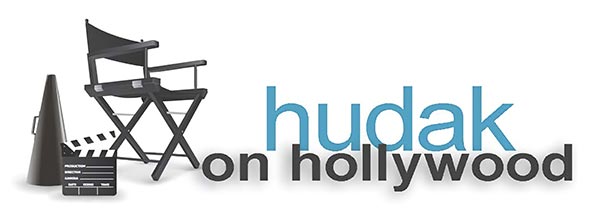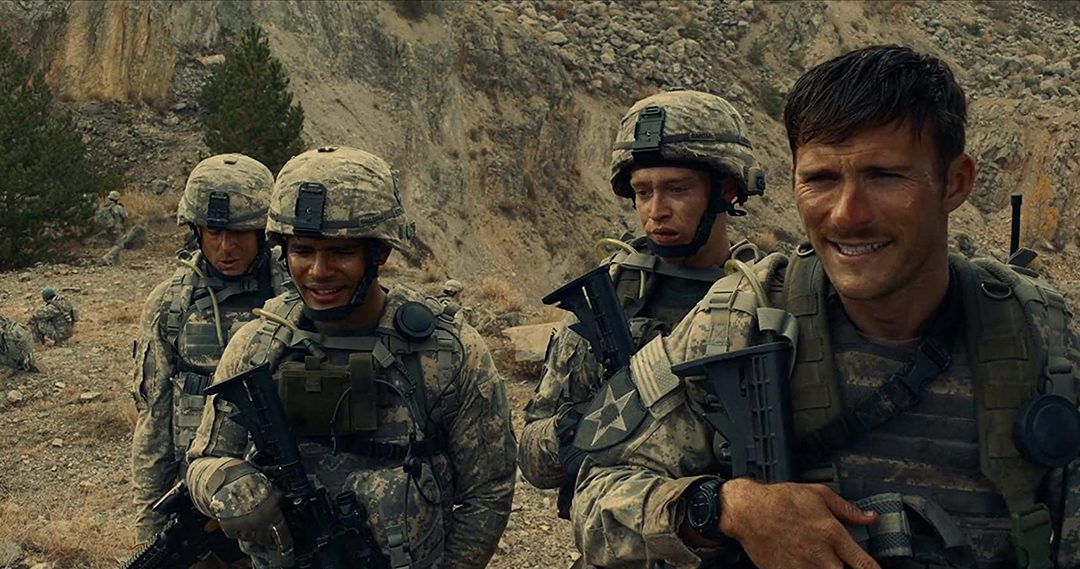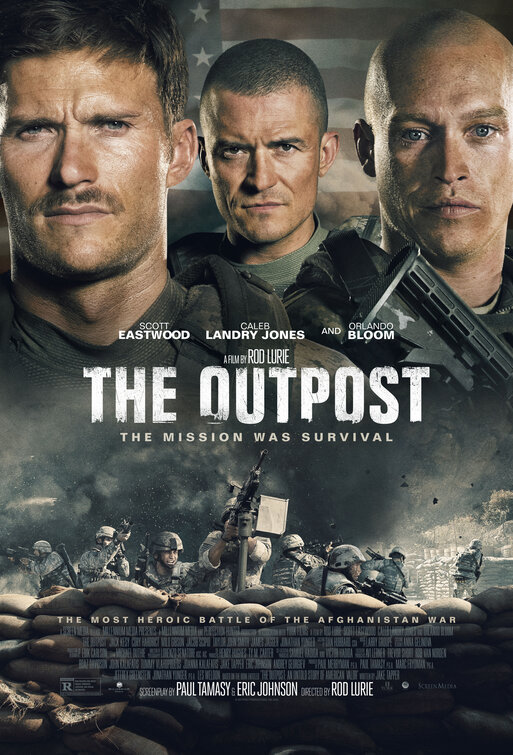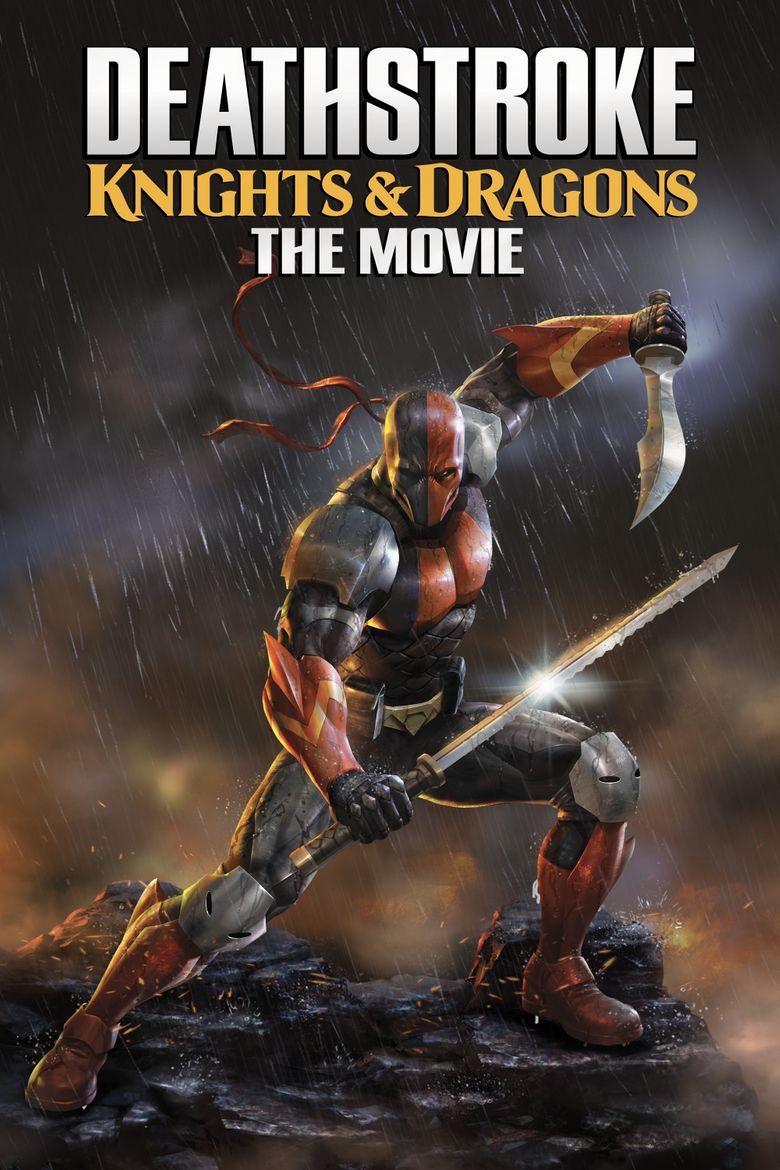“Deathstroke: Knights and Dragons” is also new to Blu-Ray this week.
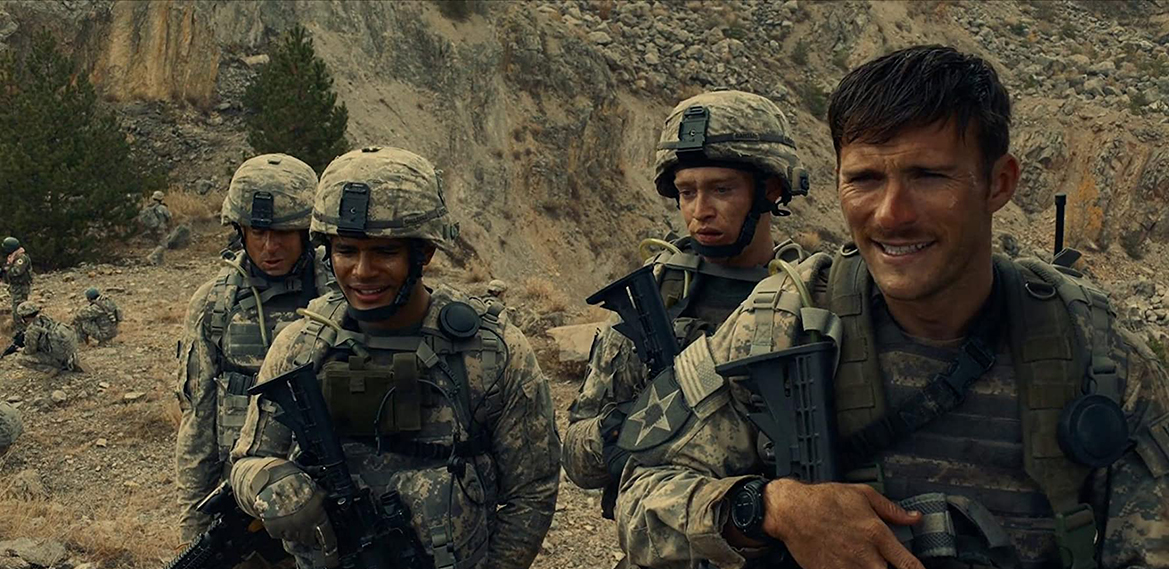
The Outpost
It’s been said that art imitates life. It’s also been said that history repeats itself. The truth in these axioms was clearer than ever to me as I watched “The Outpost,” about a U.S. Army unit in Afghanistan who had to battle back an onslaught of Taliban fighters in 2009. This is based on a true story. However, if I didn’t know any better, I’d say it was a modern day remake of a British movie from 1964 called “Zulu,” about British soldiers during the Boer War battling an attack of Zulu warriors in Africa. Likewise, that is based on a true story.
Not only are the situations similar—isolated outpost in a foreign land, difficult to defend position, outnumbered by the enemy—there are similarities with characters as well. Notably in the form of a characters who we—and the other characters in the movie—are not entirely sure can be trusted. But when all was said and done, their bravery came out and they were awarded high honors. In “Zulu” this was Private Hook, played by James Booth. In “The Outpost” we have SPC Ty Carter (Caleb Landry Jones), who was kicked out of the Marines so he joined the Army. He doesn’t have many friends at the outpost, and his personality ruffles the feathers of more than a few others, but when push came to shove he got the job done.
Opening text at the beginning of “The Outpost” tells us that it’s referred to in Washington as “Camp Custer” and the reason is obvious—everyone there is going to die. The outpost is in a valley in the middle of some extremely tall mountains. It’s so far out and so dangerous that Army pilots will not fly personnel transports there unless it’s at night and there is no moonlight. The reason for the outpost is to stop the flow of weapons to the Taliban coming from Pakistan. This is I am sure easier said than done when there are only 54 men at the outpost.
In the beginning, the outpost is largely diplomatic. The commanding officer, CPT Ben Keating (Orlando Bloom), meets with local tribal elders and negotiates peace. He is reasonable, respectful, and understanding. The elders respond well to him. One of the horrors of “The Outpost” is witnessing the chain of events—as well as the chain of other commanding officers—that led to the breakdown of good will between the local tribe and the outpost, which eventually led to the grueling twelve hour long battle.
In showing daily life amongst American fighting men, “The Outpost” shows us the conditions and camaraderie that we’ve seen in countless other war movies. We see the personality conflicts, hear the conversations about home and about loved ones, get an understanding of the difficulty of being so far away from home, and see them try to take the edge off as best as they can. But we also see violence come from out of nowhere and the horrible life-altering, or life-ending, consequences of such violence. That’s when things get real and regardless of whatever petty or immature things may be going on, we see everyone in the outpost get on the same side of the fight.
Events like this have happened before in war. They have happened before in war movies. Sadly, given the cyclical nature of history, they will most likely happen again. But that does not mean that such stories of bravery, heroism, and sacrifice are not worth being told. As long as wars exist, battles like this one will exist. As long as movies are being made, stories like “The Outpost” (and “Zulu” for that matter) will be told. Rent it.
Deathstroke: Knights and Dragons
One look at the IMDB page for the WB animated movie “Deathstroke: Knights and Dragons” and two things pop out at me: 1) It’s episode one of a television mini-series that is supposed to be twelve episodes long, and 2) it’s TV-14. Now let’s address these.
It’s not unheard of for a show to kick off with an extended episode, or as with “Deathstroke,” an 87-minute movie. As long as it stands well on its own, it can be judged as if it were a regular feature, and “Deathstroke” withstands that test. It’s tightly plotted with clever call backs as well as twists and turns that reward you for paying attention. Michael Chiklis voices Deathstroke/Slade Wilson with just the right amount of pathos for us to sympathize with the cold-blooded antihero. The animation style is also right at home with other WB animated efforts, providing a visual cue that this story fits in to the DC animated universe.
However, I am really curious as to what channel this will air on with a TV-14 rating. While not as immensely gory as “Mortal Kombat Legends: Scorpion’s Revenge,” this movie has its fair share of graphic blood. Coupled with a sprinkling of sex and nudity in the beginning, it’s clear that this movie is intended for adults. A lot of editing is going to be required to ever show this movie on television with a TV-14 rating. Until then, it is available on Blu-Ray in all of its graphic glory. Rent it.
“Guest of Honour,” Atom Egoyan movie about a father and daughter who find themselves acting out of the bounds of good behavior as the past haunts them, starring David Thewlis, Luke Wilson, and Laysla De Oliveira; and “Looks that Kill,” the story of a teenage boy who deals with the ups and downs of being lethally attractive, starring Julia Goldani Telles, Brandon Flynn, Annie Mumolo, and Lindsay Mushett.
